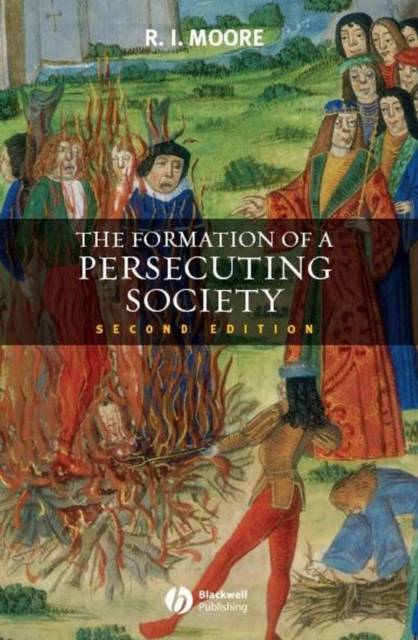
- Afhalen na 1 uur in een winkel met voorraad
- Gratis thuislevering in België vanaf € 30
- Ruim aanbod met 7 miljoen producten
- Afhalen na 1 uur in een winkel met voorraad
- Gratis thuislevering in België vanaf € 30
- Ruim aanbod met 7 miljoen producten
Zoeken
The Formation of a Persecuting Society
Authority and Deviance in Western Europe 950-1250
Robert I Moore
Paperback | Engels
€ 103,45
+ 206 punten
Omschrijving
The tenth to the thirteenth centuries in Europe saw the appearance of popular heresy and the establishment of the Inquisition, the expropriation and mass murder of Jews, and the propagation of elaborate measures to segregate lepers from the healthy and curtail their civil rights. These were traditionally seen as distinct and separate developments, and explained in terms of the problems which their victims presented to medieval society. In this stimulating book, first published in 1987 and now widely regarded as a a classic in medieval history, R. I. Moore argues that the coincidences in the treatment of these and other minority groups cannot be explained independently, and that all are part of a pattern of persecution which now appeared for the first time to make Europe become, as it has remained, a persecuting society.
In this new edition, R. I. Moore updates and extends his original argument with a new, final chapter, "A Persecuting Society". Here and in a new preface and critical bibliography, he considers the impact of a generation's research and refines his conception of the "persecuting society" accordingly, addressing criticisms of the first edition.
In this new edition, R. I. Moore updates and extends his original argument with a new, final chapter, "A Persecuting Society". Here and in a new preface and critical bibliography, he considers the impact of a generation's research and refines his conception of the "persecuting society" accordingly, addressing criticisms of the first edition.
Specificaties
Betrokkenen
- Auteur(s):
- Uitgeverij:
Inhoud
- Aantal bladzijden:
- 240
- Taal:
- Engels
Eigenschappen
- Productcode (EAN):
- 9781405129640
- Verschijningsdatum:
- 16/01/2007
- Uitvoering:
- Paperback
- Formaat:
- Trade paperback (VS)
- Afmetingen:
- 153 mm x 207 mm
- Gewicht:
- 344 g

Alleen bij Standaard Boekhandel
+ 206 punten op je klantenkaart van Standaard Boekhandel
Beoordelingen
We publiceren alleen reviews die voldoen aan de voorwaarden voor reviews. Bekijk onze voorwaarden voor reviews.











